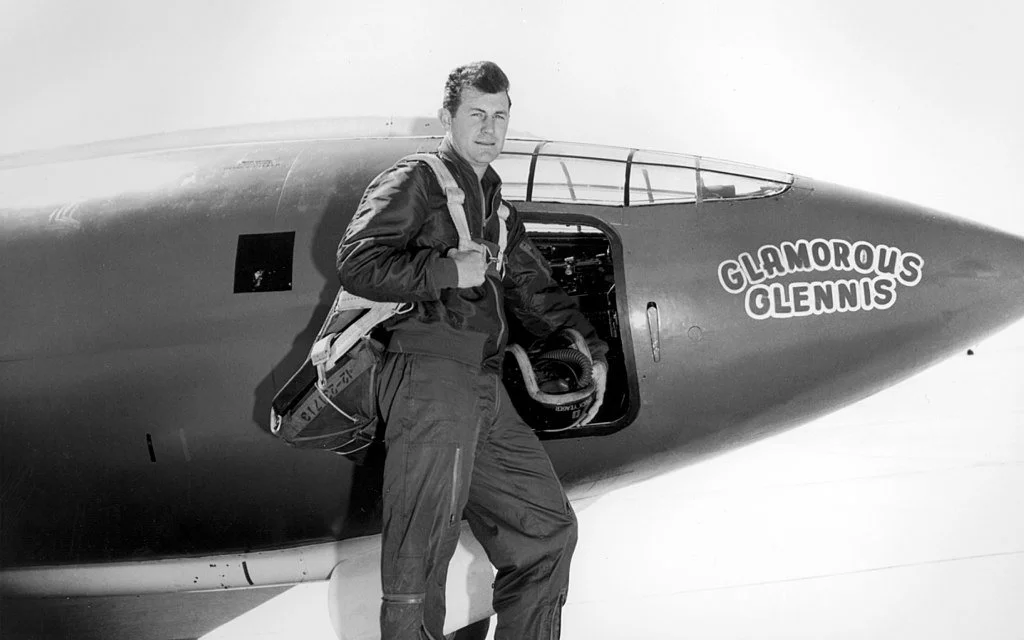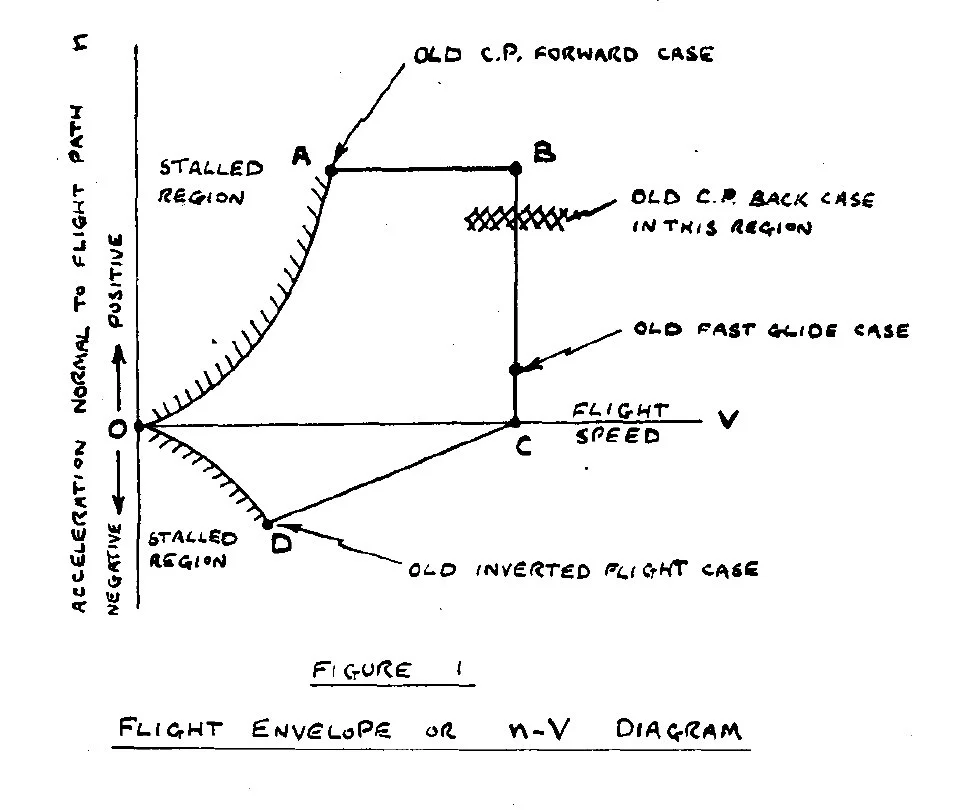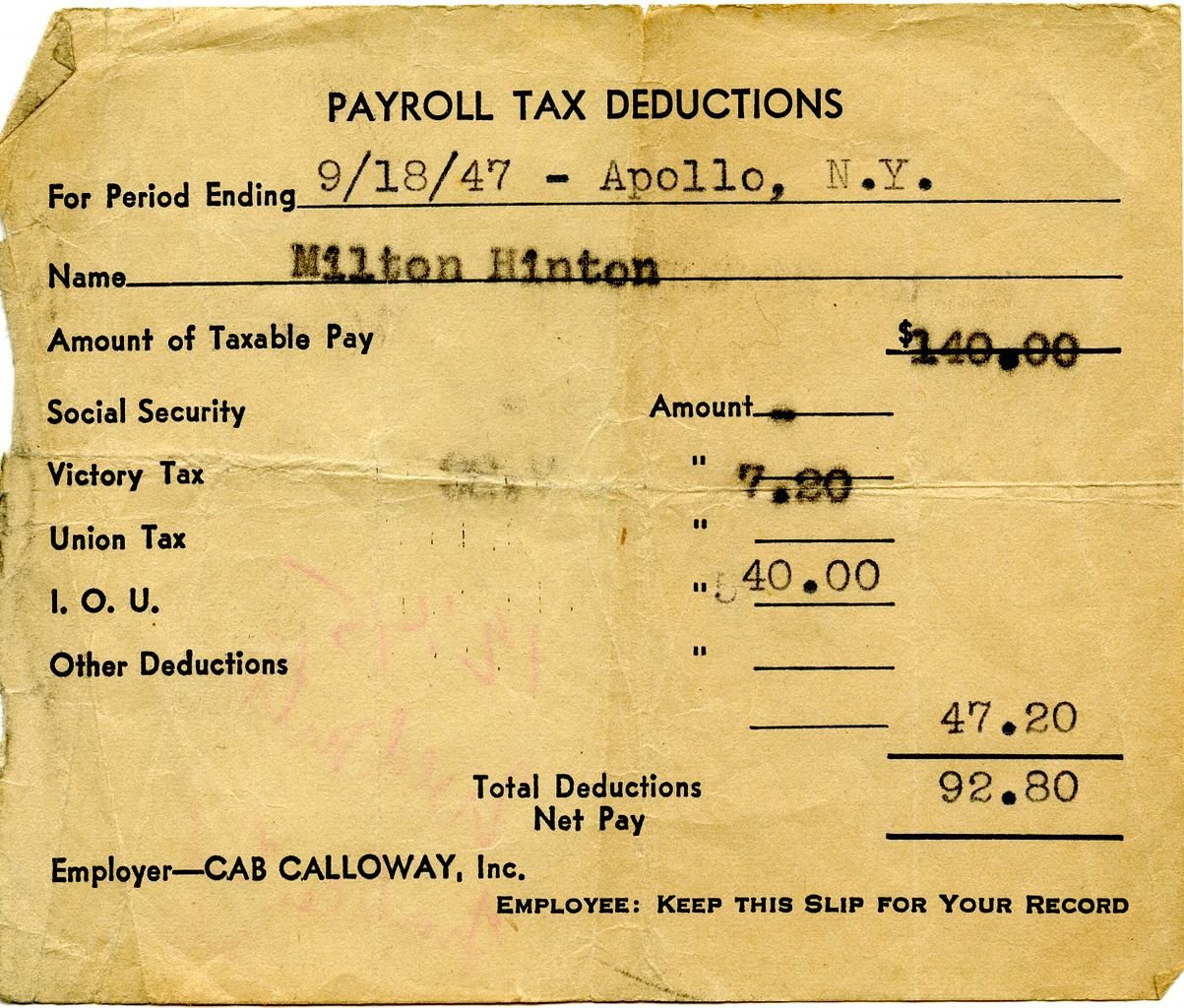13 April 2022
The phrase to push the envelope, or to push the outside of the envelope, generally means to extend the realm of what is possible. The phrase comes out of aeronautical engineering circles and entered common parlance due primarily to Tom Wolfe’s 1979 book The Right Stuff and the 1983 movie based on the book.
The verb to envelop is from the Anglo-Norman envoluper (to wrap around, to cover). The French word is cognate with the Italian verb invilluppare and the noun viluppo (a bundle), but the roots volup- and vilip- do not satisfactorily correspond with any known Latin word, so the ultimate origin is a bit of a mystery. The verb appears in English in the late fourteenth century. For example, in this passage from Chaucer’s The Pardoner’s Tale the pardoner has finished telling his story and invites Harry Bailey, the host of the group of pilgrims, to come and buy some of the religious relics that the pardoner has already identified as counterfeit:
I rede that oure Hoost heere shal bigynne,
For he is moost envoluped in synne.
Com forth, sire Hoost, and offre first anon,
And thou shalt kisse the relikes everychon,
Ye, for a grote! Unbokele anon thy purs."(I advise that our host here shall begin,
For he is most enveloped in sin.
Come forth, sir Host, and offer first right now,
And you shall kiss every one of the relics,
Yea, for a fourpence! Unbuckle right now your purse.)
It would take a few centuries for the noun envelope to appear. It’s recorded in the 1715 edition of John Kersey’s Dictionarium Anglo-Britannicum:
Envelope, (F.) a Cover for any thing; In Fortification, a Work of Earth rais’d either in the Ditch of a Place, or beyond it.
To Envelope, to cover, to wrap, or fold up, to surround, to hem in, or beset.
By the late nineteenth century, a mathematical sense of envelope had developed. In mathematical circles an envelope was an area defined by a series of curves (or lines—in mathematics, lines are “curves”). From Isaac Todhunter’s 1871 Treatise on the Differential Calculus:
The locus of the ultimate intersections of a series of curves is called the envelop of the series of curves.
By the 1940s, aeronautical engineers were using the term flight envelope to refer to the mathematical description of the limits of an aircraft’s ability to sustain controlled flight. This definition, and accompanying diagram, of a flight envelope appeared in the November 1944 issue of the Journal of the Royal Aeronautical Society:
The best known of the envelope cases is the “flight envelope,” which is in general use in this country and the United States. [...] The “flight envelope” covers all probably conditions of symmetrical manœuvring flight instead of the few isolated points specified in the previous system. It is based on the previously mentioned fact that the loads sustained in symmetrical manœuvres are mainly functions of the normal acceleration n and the flight speed V. Other variables, such as pitching acceleration, have only a secondary importance. We can therefore specify the whole range of symmetric manœuvres by drawing a diagram which defines the range on n and the range of V. Such a diagram, which is called an n-V diagram, is illustrated in Fig. 1. The line AB represents the highest expected normal acceleration: BC represents the highest expected speed, and point D the highest normal negative acceleration at low speed. The curved lines OA and OD represent the stall—it would be impossible to achieve a value of n above the line OA or below the line OB, because the wing would be beyond its stalling incidence.
Test pilots adopted the jargon to push the envelope or push the outside of the envelope to refer to taking an aircraft to the limits of what it was capable of doing, and perhaps a bit beyond. The phrase is recorded in print by 1970, when it appeared in the March issue of Air Line Pilot:
We expect to push the flight envelope out to Mach 2 sometime this spring.
Tom Wolfe’s 1979 book The Right Stuff, about test pilots and the Mercury 7 astronauts, brought the phrase to the attention of the general public. From that book:
One of the phrases that kept running through the conversation was “pushing the outside of the envelope.” The “envelope” was a flight-test term referring to the limits of a particular aircraft’s performance, how tight a turn it could make at such-and-such speed, and so on. “Pushing the outside,” probing the outer limits, of the envelope seemed to be the great challenge and satisfaction of flight test. At first “pushing the outside of the envelope” was not a particularly terrifying phrase to hear. It sounded once more as if the boys were just talking about sports.
The 1983 film based on Wolfe’s book further popularized and cemented the phrase in the general vocabulary. In this quotation from the film, astronaut Gordon Cooper, played by Dennis Quaid, talks about test pilots, and specifically about Chuck Yeager, the first pilot to exceed the speed of sound and prime exemplar of “the right stuff”:
And some of them are...they're still out there somewhere, doing what they always do. Going up each day in a hurtling piece of machinery...putting their hides out on the line...hanging it out over the edge...pushing back the outside of that envelope and hauling it back.
And this line, spoken by Yeager’s wife Glennis, played by Barbara Hersey, describes to her husband the life of a test pilot’s wife and uses the phrase with a vague sexual allusion:
We never had any insurance except a couple months' pay. I always hated all that talk about insurance. The government spends all kinds of time and money teaching pilots how to be fearless. But they don't spend a penny teaching you how to be the fearless wife of a test pilot. But I guess I liked it. I guess I liked the kind of man who could push the outside of the envelope. Flyboy.
Sources:
Davies, Mark. Corpus of Historical American English (COHA). Accessed 13 April 2022. https://www.english-corpora.org/coha/
Chaucer, Geoffrey. “The Pardoner’s Prologue, Introduction, and Tale.” The Canterbury Tales. lines 6.941–45. Harvard’s Geoffrey Chaucer Website.
Google Ngrams, accessed 13 April 2022.
Kaufman, Philip. The Right Stuff (film). Warner Brothers, 1983.
Kersey, John. Dictionarium Anglo-Britannicum, second edition. London: J. Wilde for J. Phillips, et al., 1715, s.v. envelope. Eighteenth Century Collections Online.
Middle English Dictionary, 2019, s.v. envolupen, v.
Oxford English Dictionary, third edition, December 2007, s.v. push, v.; draft additions March 2003, s.v. envelope, n.; second edition, 1989, s.v. envelop, v., flight, n.1.
Todhunter, Isaac. A Treatise on the Differential Calculus, seventh edition. London: Macmillan, 1875, 359. HathiTrust Digital Archive.
Tye W. “Factors of Safety—or of Habit?” Journal of the Royal Aeronautical Society (Aeronautical Journal), 48.407, November 1944, 488.
Wolfe, Tom. The Right Stuff. New York: Farrar Straus Giroux, 1979, 12.
Image credits: US Air Force, c.1947, public domain image; W. Tye, Journal of the Royal Aeronautical Society, 1944. Fair use of a copyrighted image to define the concept under discussion.






